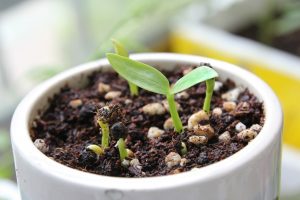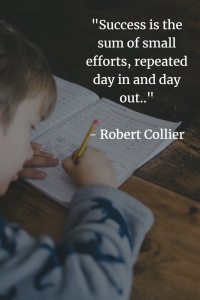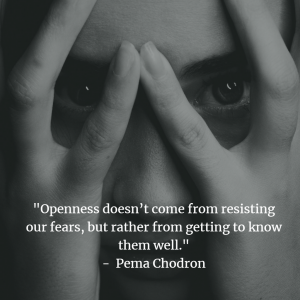Self-Efficacy

Self-efficacy refers to your belief in your ability to control an event that affects your life, and a set of beliefs in your ability to succeed in a particular situation or task. In the children classic, “The Little Engine That Could” by Watty Piper illustrates the power of self-efficacy in overcoming challenges when the little engine said, “I think I can, I think I can!” to overcome the challenge of going over the mountain. We are our stories, and self-efficacy is an integral part of crafting this story and having faith the size of a mustard seed can enable you to achieve greater heights. When facing obstacles, having faith in yourself can enable you to achieve greater heights. Self-efficacy involves determination, and perseverance, and provides the foundation for motivation, well-being, personal accomplishment, and resilience to adversity and stress.
In essence, self-efficacy is confidence in your ability to complete a task or achieve a goal. This confidence enables you to control your behaviour and thought patterns, exert influence over your environment, and stay motivated in pursuit of your goals. With high self-efficacy levels, you are more likely to take on tasks and expend more effort on them, leading to better performance outcomes. Conversely, low self-efficacy can lead to poor task planning and increased stress.
Various factors influence self-efficacy including performance outcomes, verbal persuasion, vicarious experience, and physiological feedback. Self-efficacy, or our belief in our ability to accomplish tasks and overcome challenges, is influenced by various factors. Some of these factors include:
- Performance Outcome: Our experience of success or failure on a given task can significantly impact our belief in our competencies and ability to perform similar or related tasks. Success builds a strong belief in our efficacy, while failures can undermine it, especially if they occur before we have developed a sense of belief in ourselves. To build more efficacy, one of the best-proven ways is to learn a new skill or improve our performance in a given activity by practising. It’s also essential to adopt a positive way of thinking and believe that we are capable of achieving the tasks set out for us.
- Verbal Persuasion: Encouragement and discouragement from others can also influence our belief in our abilities. Positive verbal feedback while undertaking a task can persuade us to believe that we have the skills and capabilities to succeed.
- Vicarious Experience: Watching or hearing about how others perform can be a significant factor in our self-efficacy. Other people can serve as models for sustained effort, raising our belief in our ability to succeed in similar activities. We can learn by observing other people completing a task, such as older siblings, friends, teachers, parents, aunts, uncles, or grandparents. Learning from the examples set by those around us can happen at any age.
- Physiological Feedback: Our emotional, physical, and psychological well-being can influence how we feel about our abilities in a particular situation. Our body responses and emotional arousal can also influence our belief in our abilities.
For example, success in a new challenge builds a robust belief in one’s efficacy, while failure undermines it, especially if it occurs before a sense of belief in oneself is established. Verbal encouragement and positive feedback while undertaking a task can persuade individuals to believe in their skills and capabilities to succeed. Watching or hearing about how others perform can lead to comparisons, with other people serving as models for sustained effort, leading to raised efficacy beliefs.
While building self-efficacy, individuals need to watch out for pitfalls such as high efficacy leading to insufficient preparation for tasks. Individuals should also check their responses to failures, with a high efficacy leading to attributing poor results to external factors while low efficacy leads to attributing the outcome to poor ability. To continue developing more belief in oneself and building self-efficacy, individuals can celebrate their successes, practice positive thinking, set achievable but not necessarily easy goals, and learn from others around them who exhibit good behaviour and practice.
In conclusion, self-efficacy plays a vital role in enabling individuals to achieve their goals and overcome challenges. By believing in themselves, practising positive thinking, and learning from others’ examples, individuals can continue to develop their self-efficacy and achieve greater heights in life. Our self-efficacy is shaped by our experiences, the feedback we receive from others, the examples set by those around us, and our physical and emotional well-being. By developing a positive mindset, setting achievable goals, and practising regularly, we can enhance our belief in our abilities and overcome the challenges that life throws our way. Remember, even faith the size of a mustard seed can enable us to achieve greater heights.






